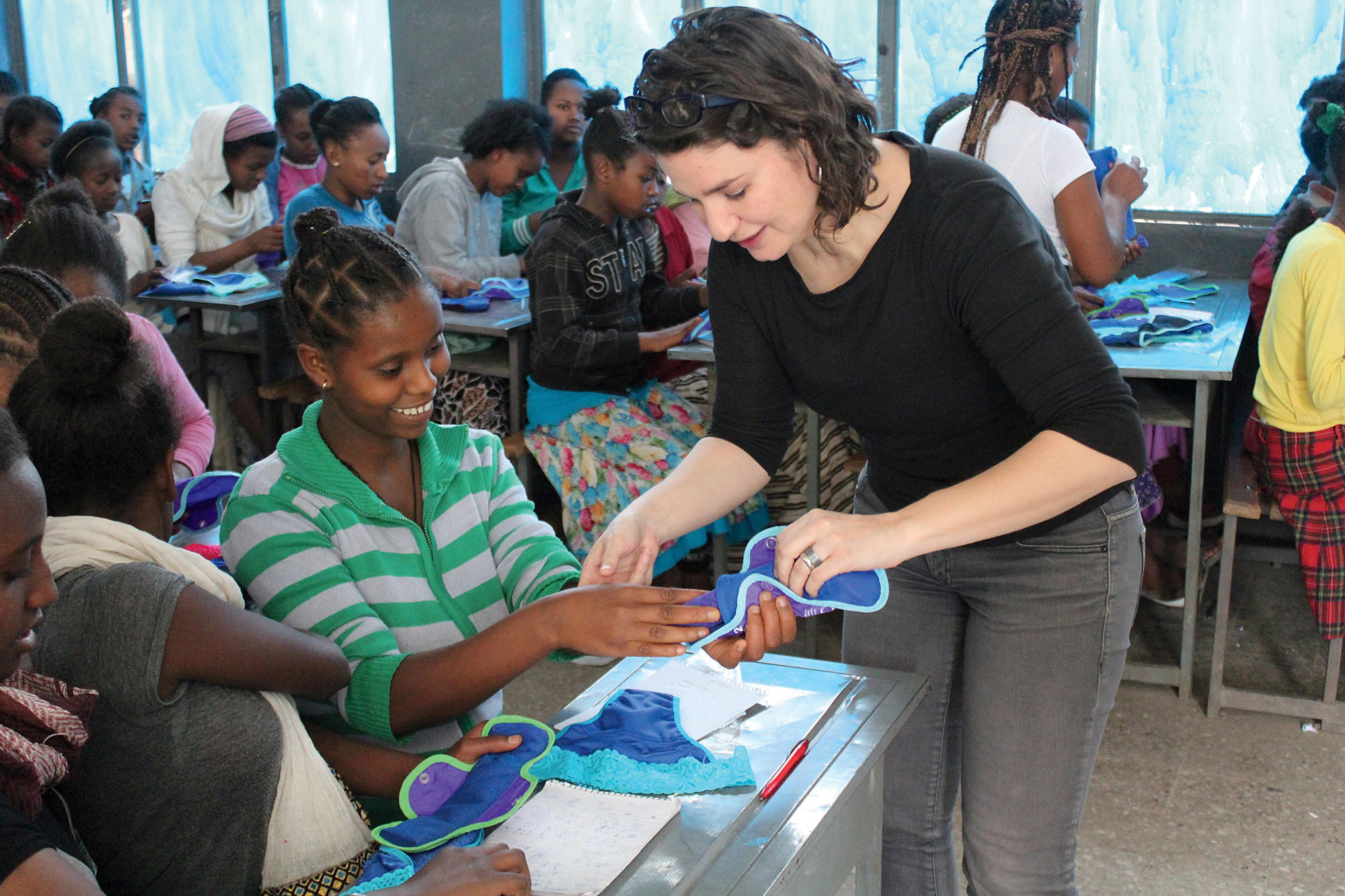Industrial designer Diana Sierra ’12SPS spent almost a decade designing sunglasses, watches, and perfume bottles for companies like Kenneth Cole and Nike. But her proudest creation — and the one that would transform her professional life — was a little less glamorous: a reusable, sustainable sanitary pad for girls in developing nations who lack access to menstrual products.
The idea came to Sierra in 2012 when she was pursuing her master’s degree in sustainability management. She had come to Columbia looking for more meaningful ways to apply her skill set. “As an industrial designer, you rarely get to choose what you work on,” she says. “After a while, I felt like I was making products that had no purpose. I wanted to design something that actually improved people’s lives.”
Toward the end of the program, Sierra traveled to Uganda as an intern for the Millennium Villages Project, a development initiative co-led by Columbia’s Earth Institute that helps communities in Africa lift themselves out of poverty. There, she learned something troubling from one of the village’s schoolteachers: once girls got their period, they started missing a week of class every month because they didn’t have access to pads or tampons. “Girls would use anything they could find, like dried grasses and pieces of old mattresses,” says Sierra. Not only were these materials unhygienic and irritating, but they would also fall out of a girl’s underwear when she moved. “The girls eventually stayed home so often that their parents pulled them out of school,” says Sierra.
Sierra was stunned. “Basically, these girls were being denied an education because of their biology,” she says. “It was the kind of problem industrial designers are meant to solve.” She used the few materials she had with her in Uganda — umbrellas, mosquito netting, scissors, and a needle and thread — to develop a prototype of a reusable sanitary pad with a permeable pouch that could be filled with any type of safe, absorbent material such as toilet paper or washable cloth. After getting approval from the teacher and the girls’ parents, she gave the pads to the students to test. “Menstruation is such a taboo subject in Uganda that the girls couldn’t believe I was even talking about it,” says Sierra.
The pad got a thumbs-up, and with the help of her teachers and the Millennium Villages Project, Sierra refined the pads and tested them in other countries. “I discovered that girls in Tanzania and Malawi didn’t even have underwear, which led me to develop panties with a built-in sanitary pouch,” she says. In 2014, Sierra and her Columbia classmate Pablo Freund ’12SPS launched Be Girl, a for-profit social enterprise that provides the pads and underwear to girls in developing countries. The underwear is also available to the general public at Begirl.org; for each pair purchased, the company donates a pair to a girl in need.
In the past two years, Be Girl has distributed over sixteen thousand pads and panties in twenty- three countries. Sierra credits much of her success to the creative freedom and support she received at Columbia. “I came from a humble background myself,” says Sierra, who grew up in rural Colombia. “My hometown didn’t even appear on Google Maps until last year. Now I’m traveling the world helping people. It’s my dream job.”



